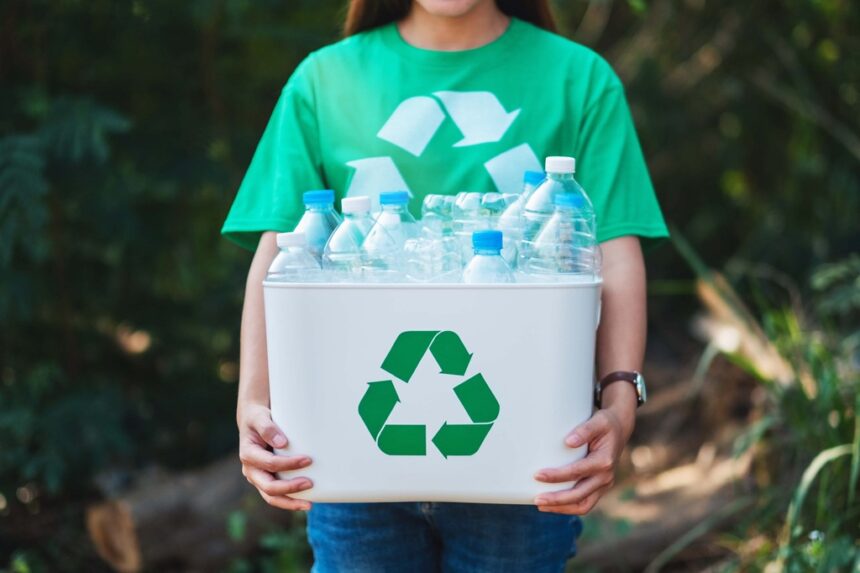Plastic has become a basic component of modern living. Unquestionably, its waste and pollutants have an environmental effect on land, oceans, and even the air we breathe. Plastic recycling programs and services like Happen Ventures are rising as a vital part of the worldwide attempt to reduce these negative consequences and pursue a cleaner, more sustainable future through plastic recycling.
Why Plastic Waste is a Growing Problem
Made by manufacturing, plastics are flexible and strong. However, these traits can cause serious environmental issues. Some of the numerous reasons for the growing problem of plastic waste are as follows:
- Plastics remain in natural environments and landfills and can take hundreds of years to break down.
- Every year, about eight million tons of plastic wind their way into the oceans, upsetting marine life and ecosystems.
- Plastic breaks down, producing harmful chemicals and microplastics that might contaminate food chains.
Given these issues, it is essential to put reasonable recycling strategies into action to reduce plastic waste and its negative consequences on the environment.
How Plastic Recycling Services Make a Difference
By turning waste into new, usable items, plastic recycling services play a crucial part in lowering waste. The approach plays a crucial part in lessening environmental impact and demand for virgin materials. These are some of its advantages:
1. Conservation of resources
Recycling plastic lowers the demand for raw materials because many plastics come from petroleum. Reusing current resources helps us save priceless natural resources and reduce the energy needed for processing and extraction.
2. Reduce landfill waste
Recycling plastic helps divert waste from landfills. Reducing this waste helps stop methane production, a strong greenhouse gas released by waste breakdown, from contaminating soil and water supplies.
3. Reduce emissions of carbon
New plastic material manufacturing causes notable carbon emissions. Recycling plastic helps slow climate change by reducing up to 30% of the carbon footprint of manufacturing operations.
4. Financial advantage
Recycling programs generate jobs in collection, sorting, processing, and manufacturing. Additionally, by using recycled materials, often less expensive than virgin plastics, businesses may also cut costs.
Types of Plastic Recycling
Many techniques exist for recycling plastic, each with its own advantages and disadvantages. Understanding these strategies will enable customers and companies to make informed decisions on recycling policies.
1. Recycling of mechanical parts
This is the most commonly used form of plastic recycling. To make new goods, it sorts, cleans, shreds, and melts plastic. Mechanical recycling has drawbacks too, since some polymers lose quality over multiple recycling cycles.
2. Recycling chemicals
By separating polymers into their molecular components, chemical recycling makes it possible to produce nearly identical, high-quality goods from these plastics. Although more expensive, this approach could recycle a wider variety of plastics than mechanical techniques.
3. Energy recovery
Energy recovery involves turning plastic waste into energy in situations where conventional recycling approaches are not possible. Although this method lowers waste volume, its less sustainable nature results from emissions and energy inefficiencies.
How Communities and Businesses Can Support Plastic Recycling
Cooperation among people, companies, and governments will determine how well plastic recycling programs succeed. Here are several approaches to improve efforts at recycling:
1. Educating the Public
Promoting correct recycling techniques helps to avoid pollution of recycling channels. Customers should be aware of local recycling rules and how to identify recyclable plastics.
2. Establishing Producer Responsibility Programs
Programs for extended producer responsibility (EPR) require manufacturers to handle product end-of-life disposal. This pushes businesses to provide recyclable packaging and fund recycling facilities.
3. Investing in advanced recycling technologies
Plastic recycling can become more effective and efficient with creative ideas for recycling technologies. Governments and businesses should prioritize funding for research and development, thereby increasing recycling opportunities.
4. Collaborating with recycling services
Companies may control their plastic waste responsibly by working with expert recycling companies. These services guarantee correct sorting, processing, and reusing of materials by providing customized solutions to manage huge amounts of waste.
Plastic Recycling as a Step Toward a Circular Economy
Keeping items in use for as long as feasible helps a circular economy decrease waste. In order to continuously reuse materials rather than throwing them away, plastic recycling services are a crucial part of this strategy.
Adopting circular economy ideas can help us to create a more sustainable planet, cut reliance on limited resources, and lower pollution levels.
How Might You Help Plastic Recycling?
There are many ways you can help recycling projects be successful:
- Use less single-use plastics and choose reusable goods.
- Use your local recycling instructions to properly avoid contamination.
- Buy goods produced from recycled resources to increase market demand.
- Promote policy changes whereby legislators might carry out and enforce recycling initiatives.
Through these initiatives, you can significantly help build a better, healthier future by reducing plastic waste.
A Vision for a Cleaner Future
In the struggle against resource depletion and environmental contamination, plastic recycling services are crucial. These services open the path for a sustainable future by means of resource conservation, waste reduction in landfills, and carbon emissions decreasing.
But real development calls on governments, companies, and people all actively participating. Working together, we can design a society in which plastic waste presents chances for positive change rather than a burden.
Related News:
Thailand Implements Plastic Scrap Import Ban in 2025
The opinions or information expressed in this press release are solely those of the authors and do not necessarily reflect the views of the Chiang Rai Times. For more information on our sponsored content policy Click Here














